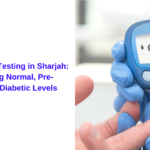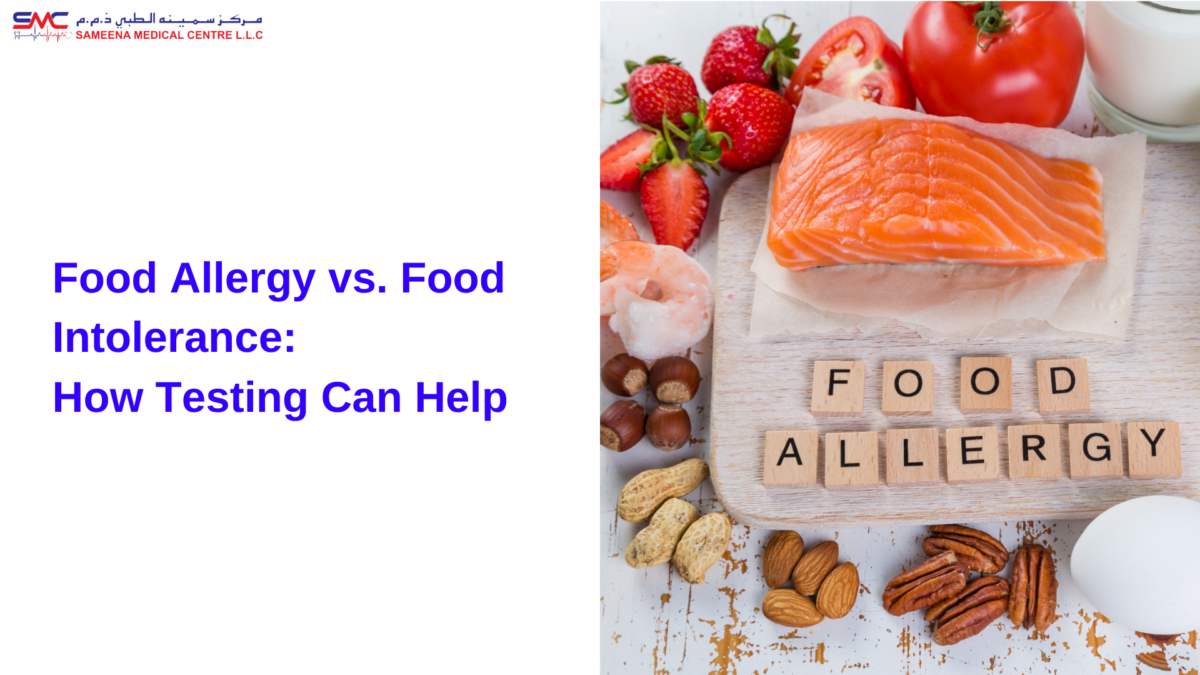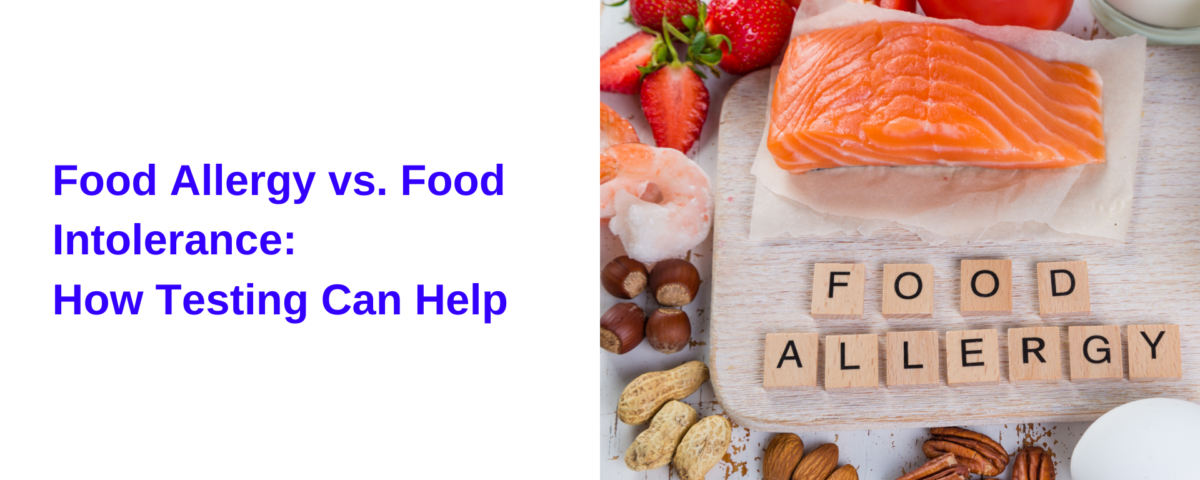
Blood Sugar Testing in Sharjah: Understanding Normal, Pre-Diabetic, and Diabetic Levels
March 20, 2025
Gum Disease and Heart Health: The Surprising Connection
March 28, 2025Food Allergy vs. Food Intolerance: How Testing Can Help

Understanding the Difference Between Food Allergy and Food Intolerance
Many people experience adverse reactions to food, but not all are caused by allergies. Food allergies and food intolerances are often confused, yet they differ significantly in how they affect the body and the severity of symptoms.
A food allergy triggers an immune system response that can lead to severe, even life-threatening reactions. In contrast, food intolerance primarily affects digestion, causing discomfort but not posing a serious health threat.
Key Differences: Food Allergy vs. Food Intolerance
Feature | Food Allergy | Food Intolerance |
Cause | Immune system reaction to proteins in food | Digestive system’s inability to process certain components |
Onset of Symptoms | Immediate (within minutes to hours) | Delayed (can take hours or days) |
Severity | Can be life-threatening (anaphylaxis) | Generally not life-threatening |
Common Symptoms | Hives, swelling, difficulty breathing, anaphylaxis, vomiting | Bloating, gas, diarrhea, stomach pain, headaches |
Common Triggers | Nuts, shellfish, dairy, eggs, soy, wheat | Lactose (dairy), gluten (wheat), certain preservatives, caffeine |
Why Food Sensitivity Testing is Important
Food allergies and intolerances can often be difficult to diagnose based on symptoms alone. Testing helps:
- Identify Trigger Foods: Understand which foods cause reactions and need to be avoided.
- Prevent Severe Reactions: For allergies, early diagnosis can help prevent life-threatening emergencies.
- Improve Digestion and Well-being: Managing food intolerances can relieve chronic symptoms such as bloating, fatigue, and headaches.
- Guide Nutritional Choices: Avoiding problematic foods ensures you still get essential nutrients from other sources.
Types of Food Allergy and Intolerance Tests
1. Skin Prick Test (SPT) – For Allergies
- A small amount of the suspected allergen is placed on the skin, and a tiny prick is made.
- If a reaction occurs (redness, swelling), the test is positive.
- Useful for diagnosing allergies to nuts, dairy, shellfish, and other common allergens.
2. Blood Test (IgE Test) – For Allergies
- Measures Immunoglobulin E (IgE) antibodies in response to specific allergens.
- Helps confirm allergic reactions to foods and other substances.
3. Hydrogen Breath Test – For Intolerances
- Used for lactose or fructose intolerance, this test measures the gases produced after consuming a small amount of the suspected food.
4. Elimination Diet – For Intolerances
- Involves removing suspected foods for a period and gradually reintroducing them to observe reactions.
- Often used for gluten, dairy, and food additive intolerances.
Managing Food Sensitivities for Better Health
Once a food allergy or intolerance is diagnosed, the next step is to adjust your diet accordingly:
- For Allergies: Completely avoid trigger foods and carry an EpiPen if prescribed.
- For Intolerances: Limit or avoid problematic foods while finding suitable alternatives to maintain balanced nutrition.
Nutrient deficiencies can result from eliminating certain foods. If you avoid dairy, gluten, or other essential sources of vitamins and minerals, consider checking your nutrient levels.
Read Also:
Vitamin B12 & D Deficiencies, Risks, and When to Get Tested
Get Expert Food Allergy and Intolerance Testing in Sharjah
At Sameena Medical Centre, we provide:
- Accurate allergy and intolerance testing using advanced diagnostic tools.
- Expert consultation to help manage dietary changes and prevent complications.
- Comprehensive health screenings, including vitamin and nutrient testing to maintain optimal well-being.
Take control of your health today. Schedule your food allergy or intolerance test with us.





